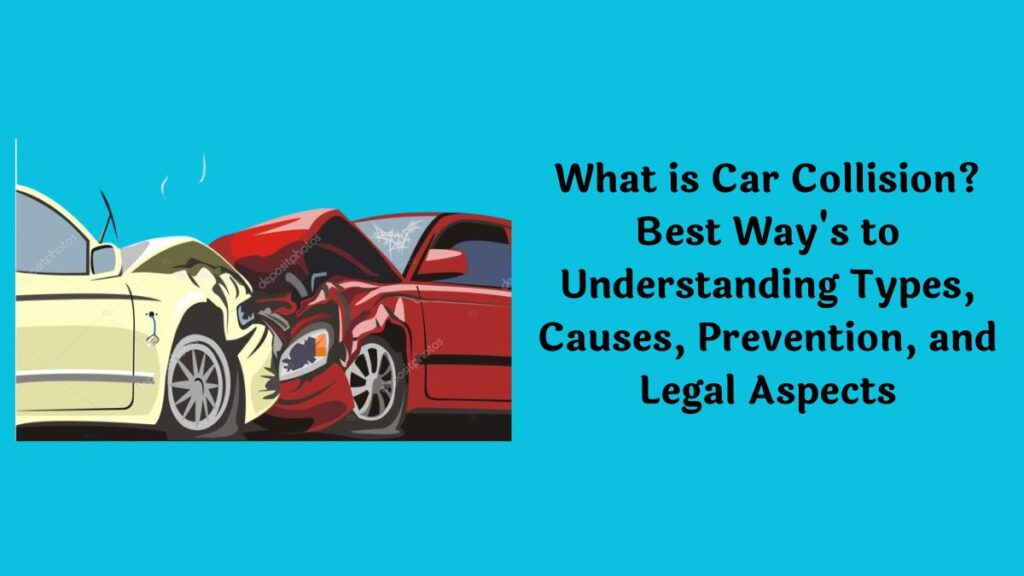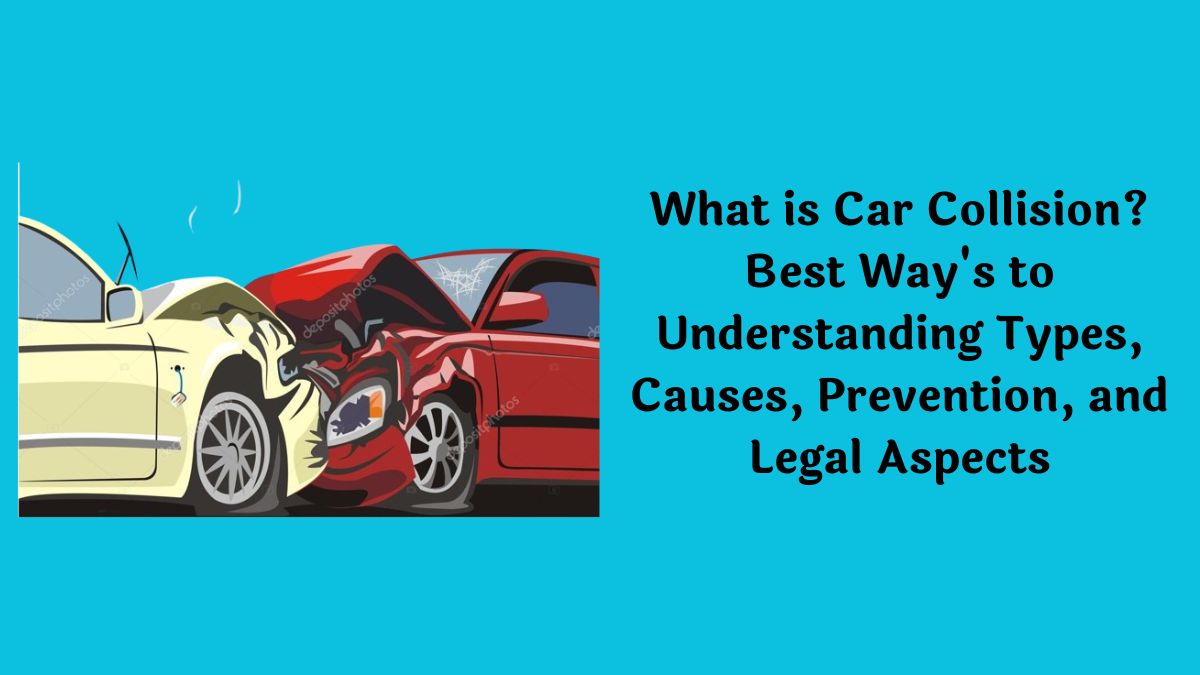Car collisions are unfortunately common occurrences on roads worldwide, often resulting in devastating consequences. Understanding the various aspects of car collisions, including their types, causes, prevention measures, and legal implications, is crucial for promoting road safety and minimizing the risks associated with driving.

Car crashes or accidents, refer to instances where two or more vehicles collide with each other or with stationary objects, such as barriers or trees. These incidents can lead to a wide range of consequences, from minor property damage to severe injuries and fatalities.
Types of Car Collisions
Rear-end Collisions
One of the most common types of car collisions occurs when one vehicle crashes into the rear of another vehicle. These collisions often result from tailgating or sudden braking.
Move vehicles to a safe location if possible to prevent further accidents. Exchange contact and insurance information with the other parties involved and gather evidence such as photos of the scene and witness statements. It’s essential to report the collision to your insurance company promptly.
Side-Impact Collisions
Side-impact collisions, also known as T-bone accidents, occur when the front of one vehicle crashes into the side of another vehicle. These collisions frequently happen at intersections.
Insurance companies and legal authorities may conduct investigations to establish liability based on negligence or violation of traffic laws. In some cases, fault may be shared between multiple parties involved in the collision.
Head-On Collisions
Head-on collisions occur when the front ends of two vehicles collide with each other while traveling in opposite directions. These accidents often result in severe injuries or fatalities due to the high impact forces involved.
In cases where there is dispute over fault, injuries are sustained, or property damage exceeds a certain threshold, involving the police can help document the incident and facilitate the insurance claims process.
Rollover Collisions
Rollover collisions involve a vehicle flipping onto its side or roof during a crash. These accidents are more common in vehicles with a higher center of gravity, such as SUVs and trucks.
However, it’s generally recommended to report the collision to your insurance provider as soon as possible to avoid any potential delays or complications in the claims process.
Common Causes of Car
Distracted Driving
Distracted driving, including activities such as texting, talking on the phone, or adjusting the radio while driving, is a leading cause of car collisions.
Following reputable sources such as government agencies, automotive organizations, and safety advocacy groups can provide valuable insights and resources for promoting road safety and reducing the risk of collisions.
Speeding
Excessive speed significantly increases the likelihood of a collision and exacerbates its severity. Speeding reduces the driver’s ability to react to unexpected situations on the road.
Drunk Driving
Driving under the influence of alcohol or drugs impairs judgment, coordination, and reaction time, leading to a higher risk of car collisions.
Weather Conditions
Adverse weather conditions, such as rain, snow, or fog, can reduce visibility and create slippery road surfaces, contributing to car collisions.
Impact of Collisions
Car collisions can have far-reaching consequences, including physical injuries, property damage, and emotional trauma for those involved. The severity of the impact depends on various factors, including the speed of the vehicles involved and the use of safety features like seat belts and airbags.
How to Prevent Collisions
Defensive Driving Techniques
Practicing defensive driving techniques, such as maintaining a safe following distance, staying alert, and anticipating potential hazards, can help reduce the risk of car collisions.
Avoiding Distractions
Avoiding distractions while driving, such as using electronic devices or engaging in conversations, allows drivers to focus their full attention on the road and react promptly to changing conditions.
Maintaining Vehicle Safety
Regular maintenance of vehicles, including checking brakes, tires, and lights, ensures that they are in optimal condition and less prone to mechanical failures that could lead to collisions.
Legal and Insurance Aspects
Liability in Collisions
Determining liability in car collisions involves assessing factors such as negligence, recklessness, and compliance with traffic laws. Legal proceedings may be necessary to resolve disputes and determine financial responsibility for damages.
Insurance Claims Process
Following a car collision, individuals may file insurance claims to cover the costs of vehicle repairs, medical expenses, and other damages. Understanding the insurance claims process is essential for navigating the aftermath of a collision smoothly.
Some injuries, such as whiplash or concussions, may not present immediate symptoms but can cause complications later. A thorough medical evaluation ensures that any underlying injuries are identified and treated promptly, preventing potential long-term health issues.
Must Read:-
Car collisions Related [FAQs]
Q1. What should I do if I’m involved in a car collision?
Q2. How can I determine who is at fault in a car collision?
Q3. Is it necessary to involve the police in a minor car collision?
Q4. What evidence should I gather at the scene of a car collision?
Q5. How long do I have to file an insurance claim after a car collision?
Conclusion
Car collisions are significant contributors to road accidents worldwide, resulting in injuries, fatalities, and substantial economic costs. By understanding the types, causes, and prevention measures associated with car collisions, individuals can take proactive steps to promote road safety and reduce the incidence of accidents.
